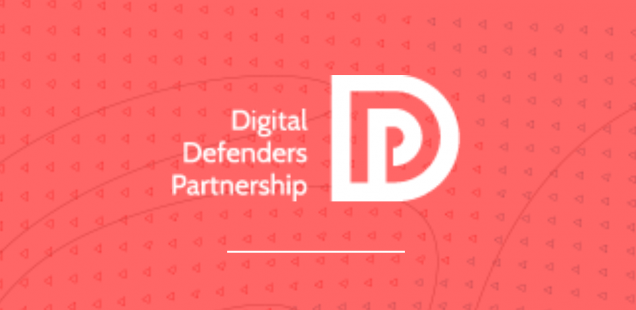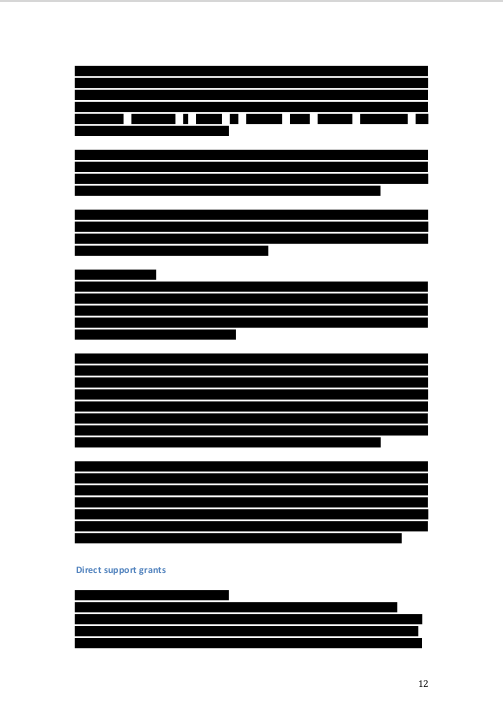Governments Covertly Fund Internet Freedom Activists | | PirateTimes

Governments Covertly Fund Internet Freedom Activists
In September of 2012, a nonprofit from the Netherlands, Hivos, announced that it was launching a new fund called the Digital Defenders Partnership (DDP). The governments of the Netherlands, US, and UK created this new fund to “promote, secure, and advance human rights online.” Although the Digital Defenders Partnership is public, many of its contracts remain secret.
The governments of the US, UK, Netherlands, Sweden, Estonia, Latvia and Czech Republic help finance the Digital Defenders Partnership, which is managed by a nonprofit called Hivos. A document detailing the Digital Defenders Partnership’s grant-making procedures states, “DDP works in very repressive environments, like Turkmenistan, China, Russia, Bahrein or Iran, and can be classified as highly confidential. In the cases where our partner resides in these countries it is advisable that there is no paper and in some cases even financial trail between Hivos and the partner.” For highly confidential contracts, the contractors’ names and any unique identifying information would be kept out of quarterly reports. Hivos encouraged its government donors to disregard their freedom of information (FOI) laws and to not release information about certain contractors. The Digital Defenders Partnership’s grant-making guidelines also state, “Put the confidentiality status next to the partner description so that government representatives can keep this out of potential FOI requests”. These guidelines may be illegal and violate freedom of information laws in several of the donor countries.
In November of last year, I filed a series of freedom of information requests about the Digital Defenders Partnership to several governments. In many countries, freedom of information laws allow anyone to request records from the government.
In response to my request, the UK Foreign and Commonwealth Office has not released any records about the DDP. The UK government has sent me three notices stating that it intends to keep extending its deadline for responding to my freedom of information requests.
The government of Estonia claimed that it only had some relatively minor documents about its funding to Hivos for the DDP. In other records, released by the Netherlands government, documents show that at least three different people, employed by the Estonian Ministry of Foreign Affairs, attended Donor Committee meetings for the DDP. In addition, records from the Swedish government show that emails about the DDP were sent to employees of the Estonian Ministry of Foreign Affairs. Based on these facts, the Estonian government likely has more records, but refuses to release the records or even acknowledge their existence.
The Swedish government took almost three months to conduct a secrecy assessment to determine whether some of the DDP records are classified. While the Swedish government has released many records, some records detailing the Digital Defenders Partnership’s contracts have been redacted.
As detailed in records obtained from the Netherlands Ministry of Foreign Affairs, Hivos went to great lengths to keep some of its contracts secret. Hivos even created its own internal classification system for contracts. Depending on the contract’s classification, there would be little or no public paper trail to link Hivos and its contractors. In order to hide financial ties to its contractors, Hivos also has the ability to directly purchase satellite internet connections, laptops, cellphones, and other items for its contractors. According to a draft version of Hivos’ confidentiality procedures, Hivos wanted to be able to send money to offshore bank accounts outside the contractor’s home country.
The Netherlands Ministry of Foreign Affairs heavily redacted some documents which detailed the Digital Defenders Partnership’s contracts.
The Netherlands Ministry of Foreign Affairs heavily redacted some documents, which included the names of contractors and details of their activities. In explaining its decision to redact the names of some contractors and information about the contracts, the Netherlands Ministry of Foreign Affairs responded:
“Several names of organisations and description of their activities in the documents are not disclosed. Publication of their names and/or activities could form a security risk for these organisations and their employees and would interfere with and/or obstruct them from implementing their activities. This would disproportionately disadvantage the position of those organisations and also of the Minister as this would make it difficult or impossible to realize all the policy goals. The public interest served by disclosure of this information is outweighed by the importance of preventing this disproportionate disadvantage to the organisations and the Minister. I therefore refuse publication of the documents concerned on the basis of section 10, subsection 2, opening words and (g), of the Government Information (Public Access) Act.”
In other words, the statement says that the government’s right to secrecy is more important than the public’s right to know. Transparency in government helps form the bedrock of democracy. Governments continue to secretly finance groups abroad to promote democracy, while denying democracy at home.

About Rachael Tackett
Originally part of the Occupy protests, Rachael is an advocate for transparency in government and digital civil liberties.














jilm
Rachael Tackett
Edward
Zbigniew Łukasiak
Innes
Colin Carr
Rachael Tackett
Activist
Activist
gotta go p33 p33
Jyri Snellman, Finland
Jyri Snellman, Finland